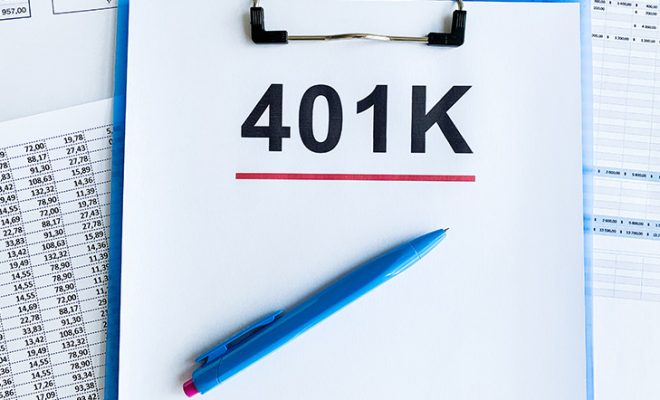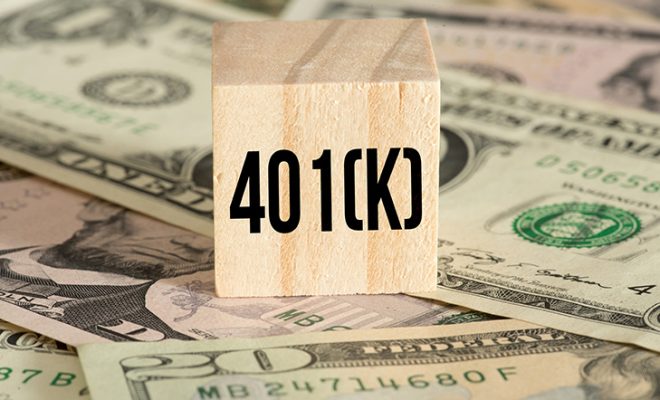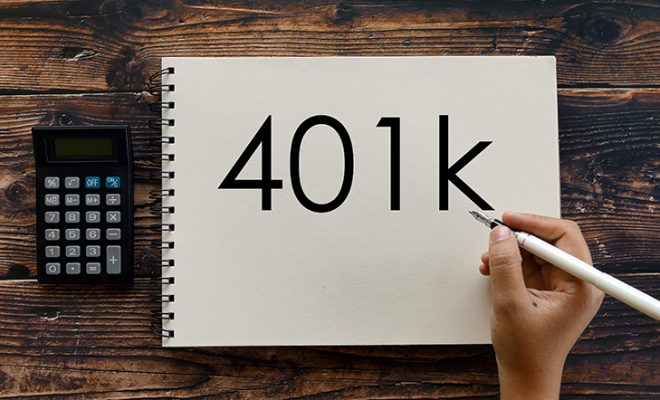How Do I Stop My 401(k) From Losing Money?

The 401(k) is a long-term investment vehicle and is bound to see ups and downs over time. The value of your investments may drop, and your 401(k) may lose money when there is a market downturn. If you are young with many years left to retire, you can recoup and build up a retirement corpus that can suffice in retirement. However, this drop could affect you significantly if you are approaching retirement in a few years.
A financial advisor can help you understand how to stop your 401(k) from losing money with customized advice based on your unique situation and goals. This article also discusses key points that can help in such a scenario.
Why is my 401(k) losing money?
It is important to understand why your 401(k) may be losing money. Seeing losses in your 401(k) account is not uncommon and is considered an inevitable part of investing. The key is to have a long-term investment strategy and to make adjustments as and when necessary to ensure your investments align with your goals and risk tolerance.
There are several reasons why your 401(k) account might lose money. Here are some of the most common ones:
1. Market volatility
The stock market can be unpredictable, and it is common for your investments to experience short-term losses due to market fluctuations. Economic conditions, political events, and global crises can all impact the performance of your assets. A change in governments or government policies, international events like wars and pandemics, sector-based events, such as companies or banks going bankrupt, etc., can lead to market volatility and short-term losses.
2. Investment risk
A 401(k) offers multiple investment options, from stocks to bonds. The risk involved with each of these is different. Depending on the types of investments you choose, there may be a higher risk of losing money. For example, stocks and mutual funds can be volatile and experience sudden value drops. On the other hand, bonds may be relatively less risky. If your 401(k) investment portfolio is heavily concentrated on high-risk options and does not match your risk appetite, you may find it hard to digest the sharp ups and downs in your 401(k)’s value.
3. High fees
Every investment has a fee associated with it. High fees can eat into your returns over time. Ensure you understand the fees associated with your 401(k) investments and choose investments with low fees whenever possible.
4. Poor asset allocation
If you have too much money invested in one type of asset, such as stocks, and that asset experiences a significant drop in value, it can result in substantial losses. Diversifying your portfolio and giving adequate weightage to each asset class is essential.
5. Poor investment choices
If you choose investments that do not perform well over time, you may experience losses in your 401(k) account. A 401(k) can offer many investments that you should carefully choose based on your risk tolerance, financial needs, and goals.
How to stop your 401(k) from losing money
Here are some things you can do if you see your 401(k) losing money:
1. Do not sell your investments in a moment of panic and ride out the market volatility
It is essential to ride out market volatility and understand that it is a normal part of the investment cycle. The stock market works in cycles. It may be unpredictable in the short term, but historically, it has shown upward trends in the long term. Short-term price movements are not rare and occur more often than you think. While the first few times may be concerning, it is better to understand the root cause of these fluctuations instead of panicking over them.
The greatest mistake most investors make when they see their 401(k) balance dropping is selling their investments in a panic. If you panic and sell your investments during a downturn, you incur a loss and miss out on potential gains when the market rebounds. It is almost impossible to time the market, even for seasoned investment professionals. Therefore, it may be advised not to attempt it.
Instead, focus on keeping a long-term investment horizon. By staying invested and maintaining a long-term perspective, you allow your investments to recover and benefit from future growth potential. Staying invested during market volatility can also provide opportunities to purchase stocks or funds at a discount. This way, you can buy low and later sell high and earn a profit.
2. Diversify your 401(k) portfolio to balance risk and reward with your risk appetite
It is essential to have a well-diversified portfolio that matches your risk appetite and financial goals. Diversification reduces risk by spreading your investments across different asset classes, industries, market capitalizations, and regions. When you diversify your portfolio, you can minimize the impact of any individual investment’s poor performance on your overall returns. For instance, if your 401(k) has only your company’s stocks and the stock prices drop, your 401(k)’s entire value will come down drastically. However, investing carefully across asset classes, industries, and sectors can reduce your overall risk and improve your chances of achieving your long-term financial goals.
Here are some things to note when diversifying your portfolio to stop your 401(k) from losing money:
- Determine your risk tolerance
Before you start diversifying, consider your risk tolerance, as it will impact the types of investments you choose. Your risk appetite can depend on your age. Generally, the younger you are, the more risk you can take, as you have more time to ride out market fluctuations. However, as you get older, your risk appetite drops as you have a shorter investment horizon.
- Identify your investment options
A 401(k) retirement plan can offer 12 to 14 investment options ranging from stocks, bonds, mutual funds, Exchange-Traded Funds (ETFs), target date funds, etc. Reviewing your 401(k) plan’s investment options is essential. Understand what each option can offer and how much risk it carries. Focus on including several options and pick different asset classes, industries, and regions.
- Allocate your investments according to your risk appetite
Allocate your investments among the available options to align with your risk appetite and investment goals. Consider your age, the age you wish to retire, income, debts, and other financial responsibilities, and then invest in a mix of stocks, bonds, and other funds accordingly.
- Rebalance your portfolio regularly
Over time, your investment’s value will change. This may create an imbalance in your original asset allocation and induce more risk or lower your rewards. Rebalancing your portfolio regularly helps ensure that your diversification strategy remains effective and your portfolio has the desired asset allocation. You can review your 401(k) annually or half-yearly.
- Consider seeking professional advice
If you are uncertain about diversifying your 401(k) or cannot understand your risk appetite, consult with a financial advisor. The professional can offer personalized investment strategies that match your financial goals and risk tolerance.;
3. Consider investing in target-date funds
Target-date funds are a type of mutual fund that adjust their asset allocation over time based on your target retirement date. Target date funds initially invest in aggressive investments and focus more on equity. However, as the target retirement date approaches, the fund shifts its asset allocation towards a more conservative strategy, with a higher allocation to fixed-income securities. Most 401(k)s offer target date funds, and investing in them can be an excellent way to curtail risk and keep a balanced asset allocation and risk throughout the investment term.
Target-date funds offer a lot of conveniences and are ideal for investors who may need more time, knowledge, or interest to manage their portfolios actively. The funds are designed to automatically rebalance the asset allocation over time, ensuring the portfolio remains aligned with your target retirement date. When you invest in these funds, you do not have to worry about reviewing or rebalancing your portfolio. Moreover, target-date funds invest in a mix of asset classes, providing ample diversification to mitigate risk.
SPONSORED WISERADVISOR
4. Avoid looking at your 401(k) losses too often to maintain peace of mind
Checking your 401(k) balance now and then can lead to more panic than you think. A stock market is a volatile place, which means that your investments will always fluctuate. While rebalancing your portfolio is advised and can help you maintain your desired risk appetite and asset allocation, too much can be harmful. The more you review your 401(k) plan, the more likely you are to change it. These changes can lead to multiple issues, such as tax liabilities, high fees, the potential loss from a lost opportunity, and more. It can also make it harder for you to see things from an unbiased perspective. Therefore, it is advised to keep a line between panic and genuine concern and only visit your 401(k) plan once or twice a year.
5. Switch to a different 401(k) plan with lower fees to save money
Switching to a different 401(k) plan with lower fees can be smart and help you save money over time. It can maximize the overall value of your retirement savings. If you find your 401(k)’s value being affected due to fees, you can start by researching different 401(k) plans and look for plans with lower fees and better investment options than your current plan. Looking for plans with lower expense ratios, account fees, and transaction fees is important. You can also look for a plan with an employer match, especially if your current one does not offer one. But remember to consult a financial advisor before making any significant investment decisions. Switching to a new 401(k) plan is only sometimes advised and can lead to further hassles. So, hiring a financial advisor can be essential in such a situation.
6. Consider hiring a financial advisor to manage your 401(k) account
Hiring a financial advisor can help you make the most of your retirement savings and provide peace of mind as you plan for your financial future. A financial advisor that specializes in 401(k) and other retirement plans and can provide you with valuable expertise and guidance on investment options, asset allocation, and retirement planning. They can give personalized advice tailored to your financial situation and retirement goals. They can also recommend the best funds for your 401(k) plan suited to your situation. Hiring a financial advisor can also be ideal if you need more time to manage your 401(k) plan. A financial advisor can save you time and reduce your stress by managing your plan.
Investors are often too emotionally vested in their investments to make rational decisions, especially in adverse situations. A market downturn where you see your 401(k) dropping in value can cloud your judgment. However, a financial advisor can be the voice of reason and help you navigate decisions without haste.
To conclude
Watching your 401(k) lose money can be stressful, especially if you are nearing retirement. However, these strategies can help you minimize the damage and gain momentum to recoup from the losses soon enough. Diversifying your portfolio, maintaining your desired asset allocation, rebalancing the portfolio periodically, switching to a new 401(k) plan, and consulting with a financial advisor can help you curtail the loss and maintain calm. It is also important not to panic and always see things rationally. Decisions out of panic can only lead to further hassles.
Use the free advisor match service to find a financial advisor in your area who can help you manage your 401(k) retirement plan investments. All you have to do is answer a few simple questions based on your financial needs, and the match tool will help connect you with 1-3 advisors best suited to meet your financial requirements.











